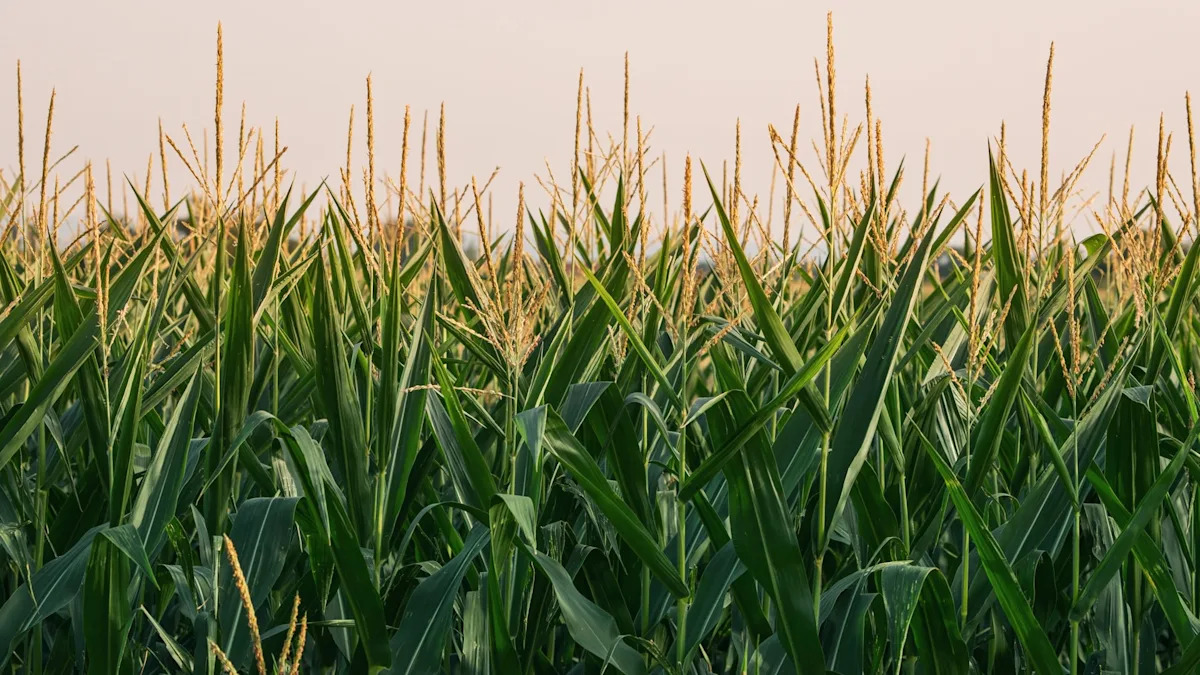Researchers have made a significant advancement in the quest to address plastic pollution by developing a method to convert common agricultural materials into bioplastics. This breakthrough could potentially revolutionize the plastic industry and reduce environmental impact. The U.S. National Science Foundation has awarded a grant of $7 million to a collaborative research group, which includes experts from Purdue University, the University of California, Berkeley, Stanford University, and the biotech company Twist Bioscience.
The newly developed bioplastics, known as polyhydroxyalkanoates, can be produced using readily available agricultural materials such as sugar, corn, and agricultural waste. This shift from traditional petroleum-based plastics to domestically sourced biomaterials would not only reduce manufacturing costs but also strengthen the U.S. economy by lessening reliance on imported oils and gases.
According to Assistant Professor Karthik Sankaranarayanan from Purdue University, these bioplastics maintain mechanical strength while being “infinitely recyclable.” This characteristic sets them apart from many conventional plastics, which often end up in landfills or incinerators. The International Union for Conservation of Nature reports that over 507 million tons of plastic are produced annually, with only 5% being recycled. The remaining waste contributes to extensive pollution, contaminating water, air, and soil.
The research team acknowledges that while polyhydroxyalkanoates have been known for some time, they face challenges related to temperature fragility. Enhancements are necessary to ensure their viability across various applications, including medical devices and packaging. The ongoing research aims to develop algorithms that will identify suitable enzymes for producing these bioplastics, as well as analyze their reaction speeds and structural properties.
Collaboration to Drive Innovation
The collaboration among these institutions is expected to yield practical applications of this technology. Emily Leproust, CEO and co-founder of Twist Bioscience, emphasized the importance of this partnership, stating, “Working with Purdue elucidates real-world applications of complex sequences, which allows Twist to further advance our ability to manufacture difficult and previously hard-to-make sequences at scale.”
The team at the University of California, Berkeley is focusing on scaling up the production processes for these bioplastics, aiming to commercialize them in the near future. This initiative has the potential to significantly reduce the prevalence of microplastics, which pose serious threats to ecosystems and human health. Traditional plastics break down into tiny particles that contaminate oceans, air, and even food sources.
Transitioning to bioplastics could lead to a cleaner environment, as it eliminates the need for oil and gas extraction, which exacerbates pollution. Additionally, the cost-effectiveness of using domestic agricultural materials may result in lower prices for consumers, making sustainable products more accessible.
As the research progresses, the involved institutions remain optimistic about the future of bioplastics and their ability to reshape the plastic landscape. This innovative approach represents a crucial step toward a more sustainable and environmentally friendly future.
The team anticipates that, with continued refinement, the technology will soon be feasible for widespread application, potentially changing the way plastics are produced and consumed globally.
